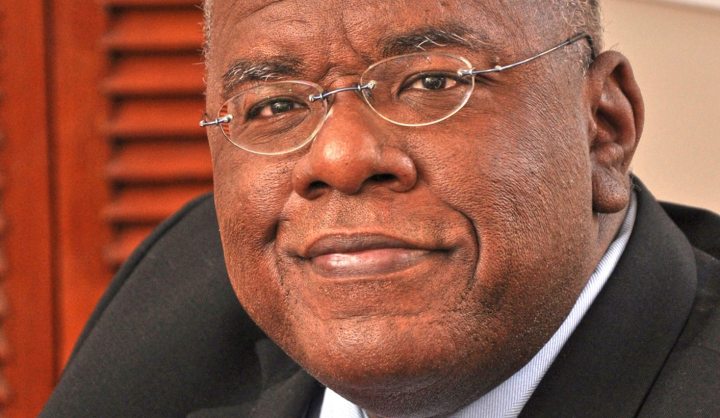South Africa
Video: Between the Lines – Jonathan Jansen

South African universities will decline to the level of teacher training colleges, according to Professor Jonathan Jansen, who leaves his job after seven years as vice-chancellor at the University of the Free State. Government knows about the problems but Jansen has never been able to engage with anyone in government around a constructive search for a solution to save the universities. South Africa’s best known educationist answered a wide range of questions from JOHN MATISONN in a broadcast last night (Sun) on CTV and DSTV channel 263.
Jonathan Jansen is one of a cohort of first rate vice-chancellors put in the forefront of the battle to transform the universities and keep them solvent. He says he always intended to stay only seven years, and he will spend a year on research and regeneration at his alma mater, Stanford University, before returning to South Africa.
Though he is pleased with many achievements during his tenure, his study of African universities tells him three factors cause decline: underfunding, state interference and chronic instability.
“The factors that brought down the universities of Makerere, Dar es Salaam and Zimbabwe – and made them less than teacher colleges, in terms of their academic standing, are the same factors now impacting on South African universities.
“Take those things together and you don’t have a future.”
As disturbing, he believes there are people in government who understand the problem but fail to focus on it.
JM: “What are they doing about it?” – Nothing.
JM: “Why?” – Because I think their priorities are elsewhere.
The immediate problem that brought students out in protest – fee increases – was a consequence of 15 years in which student numbers doubled, but the state’s contribution to the universities fell. The universities were asked to do more and more with less and less. Students first focused their fury on the universities and their vice-chancellors, but gradually shifted to government and President Jacob Zuma.
University of Johannesburg vice-chancellor Professor Ihron Rensburg, who is also about to step down, was quoted yesterday as saying that the South African state contribution to university education is 0.75% of the country’s GDP, while in neighbouring countries it is at 1.2 or 1.3%.
“I think in the next 10 to 15 years you will see South Africa’s top 10 universities begin to resemble the bottom 10. And that’s bad for higher education in South Africa,” Jansen said.
“I just don’t see a way out of this… I don’t see a leadership on the part of government that says look, we’ve got to rescue our universities. To ensure that this public asset that gives us high levels of skills and leadership is protected. I just don’t see any of that awareness. And what I do see is the opposite behaviour. Which is, let’s take more and more control of these places of higher learning, which is of course going to be a disaster.
“So the future doesn’t look bright. The lone thing that distinguished South African from any other African universities is we had within our borders some of the best universities in the world. That’s no longer going to be the case.”
The country needed to understand that universities and schools are the primary assets for rebuilding the economy and sustaining democracy. “Our government doesn’t understand that.
“(Zimbabwean President) Robert Mugabe, despite the political and moral flaws of the man … understood that. That’s why they have one of the best school systems… We don’t understand that.” Under Mugabe Zimbabwean universities were destroyed by “open encroachment by the state”. But he did not destroy the school system.
“What could turn our country around is a change of government. Not necessarily the political party. Just look at our Cabinet. There isn’t a sense of moral responsibility for the behaviour of fellow leaders, of our responsibility on the world stage – voting at the UN, and the Al Bashir case. Look at our Parliament.
“If we vote in the same people then we deserve what we get.”
Jansen credits elements of civil society, including the churches, for maintaining good values and speaking out, but criticises them for being “episodic” when what is needed is sustained action.
And what would it take to fix the universities?
“Two things. First of all you need resources, but you also need leadership. You would have to go to people, whether you like them or not, who have skills and say we need you. You could change this country over a weekend.”
Without that, “anyone who tells you there is going to be a good outcome to what we’ve seen over the past 18 months is lying”. DM
John Matisonn is the author of GOD, SPIES AND LIES, Finding South Africa’s future through its past, and host of BETWEEN THE LINES on CTV and DSTV channel 263.
Photo of Jonathan Jansen courtesy of UOFS.

















 Become an Insider
Become an Insider